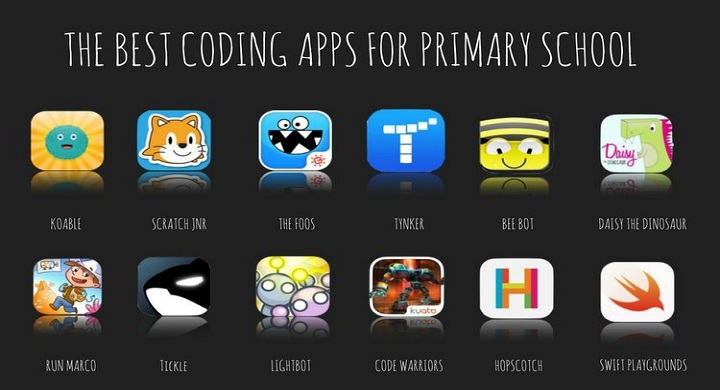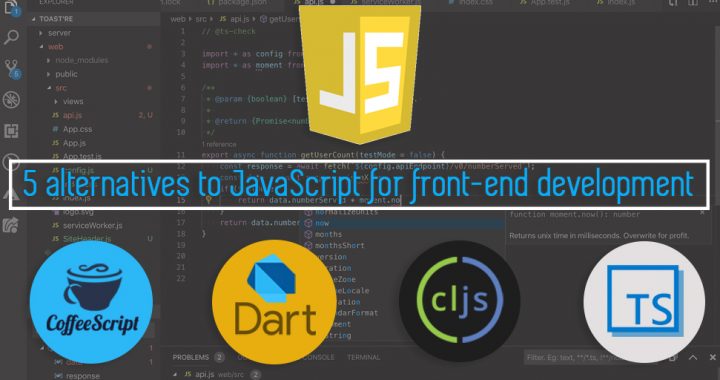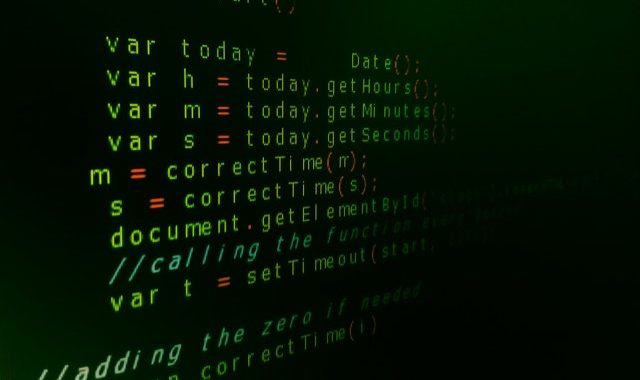Must Know Fundamental Programming Principles For Programmers

“Any fool can write a code that a computer can understand. Good programmers write code that humans can understand.”
With the advanced improvement of technologies, learning to code is easy. However, it is important to know that a simple coding language is not enough. Therefore to get involved in better and more practical works, you need to have knowledge of advanced programming. Perhaps, having advanced knowledge is not the end, there are few fundamental Principles of Programming that you need to keep in mind. In this guide, we have provided some of the most important principles that you can implement to have better practical work.
Basic Programming Principles that You can Implement:
As you know nowadays everyone knows about coding but advance coding is quite complicated. Out there, there are codes that can just break a program by changing one variable or function of the code. Apart from that, you need to have the knowledge of some coding principles that you need to keep in mind.
1. KISS Principle:
This is one of the most important principles that you need to keep in mind if you want to create great and possible practical works. Simply this means “keep it simple, stupid” principle. You need to follow this principle if you are into medium-to-large programming projects of an enterprise. For instance, if you are a good game developer that doe not mean that you will develop games like GTA V or NFS. Thus you need to be consistent about the progress. Basically, you have to keep the coding simple. More the complex the coding is the more time it will take to bring out the output. Apart from that, it is also complicated to make changes further.
2. DRY Principle:
Another crucial principle to bring out a clean and easy code is the DRY. This means “don’t repeat yourself” principle. This basically means not to repeat the coding that you have already applied. Therefore when you are writing any code ensure that you do not repeat any code thus avoiding any duplication of any coding. Perhaps, if you are repeating the same code again and again then you are creating a chunk of coding thereby breaking the principle. Also, WET is the opposite of DRY, which means “Write Everything twice” perhaps, “Waste Everyone Time”. Follow this principle and avoid repetition of the code.
3. Open/Closed Principle:
Another principle that you need to keep in mind among the Basic Programming Principles is that to keep the code is open to extension but closed to modification. This you need to follow when you are writing code in Java or Modules in Python. However, this principle is applicable to all kinds of coding, although it is ideal when you are releasing a framework or library, that is actually going to be used by the others. For instance, if you have written a code but wants to make some modification in the coding of the program then you need to release a code that is capable of make modification by enabling the use of the extension. However, make sure the code ensures that others cannot make any modifications in the Coding. Therefore, it creates a big separation from core behavior to modified behavior
4. Composition Over Inheritance Principle:
According to these Principles of Programming, the coding of the project with complex behavior should have their own instance of the object rather than depending on inheriting a class as well as adding new behavior. However, if you omit this principle this can lead to two major issues in the coding of the project. Among which the former is that the hierarchy can become a mess with a split of a second. Another is that you will not be flexible enough to define the special-case behaviors. Especially, when you particularly want implementation in the coding. Therefore it is important to ensure that have better composition, this in return will make the code cleaner to rewrite as well as easy to maintain. Apart from that, you can combine these individuals to create one complex behavior without messing it up.
5. Single Responsibility Principle:
This principle basically suggests you write a code that has its own functionality. Basically, Single Responsibility refers to provide each module of the code with its own function so that you can modify it according to your needs in the future. Although there are programmers that make huge coding for a single function. But at this point in your circle, you should break them down and provide their own functionality.
6. The Separation Of Concerns Principle:
According to this Basic Programming Principles, you should write a non-overlapping encapsulation. Apart from that, this encapsulation should not know each other. In easy language, Separation of Concerns is similar to the Single Responsibility but in a more abstract level of programming. The perfect example that can be taken is the Model-View-Controller (MVC) paradigm. Basically, this separates a program into three different portions. And these are Data (Model), logic (Controller), and lastly what the end-user sees (View). Now the Code collects all the loading and saving of the data as well as rendering them, whereas the rendering data take all the input from the End-user. Next, it passes to the logic code. Thus this results in each part handling itself separately.
7. YAGNI Principle:
Mos of the new programmer writes codes in order to modify or add a new extension in the project, which they are never going to make. This principle actually means “you aren’t gonna need it”. Plenty of programmers do this just to avoid the WET, however, the chances to add a new feature never come. Therefore you should know that you should only write programs that are actually necessary apart from thinking about abstract changes. This principle is directly linked to the DRY principle. So if you locate any chunk of codes that are written all over, then you need to change them
8. Abstain from Premature Optimization:
This coding principles ensures that you only write only the codes that will optimize the tendency to speed up the algorithms. No Premature optimization is similar to the YAGNI principle. Perhaps, the only difference is that YAGNI implements the behavior of the Code, whereas the other one optimizes the speed of the algorithms before it is necessary. Apart from that, there is a problem with this principle and it is that you will not be able to understand the bottleneck of the program, although you can predict it. And sometimes you can be even right about your assumptions. So the only solution is to create as create the program and then select out the true bottlenecks of the program.
9. Refactor Principle:
Accept the hard truth about programming that you will not get to the full results until you make the full coding for the project. Thus this principle explains that the “code rarely comes out right the first time”. With more advancements in technologies, coding has been developing with time. Thus you need to keep in mind to remodify them with time. As the new feature that you just implemented might be hindered by the complexity of the future feature. As you know that the Code is constantly evolving with the pass of time. Therefore you need to rewrite and even sometimes redesign the whole chunk of code. In addition to all this, the Refactor principle is a healthy process among the Principles of Programming list.
10. Clean Code Over Clever Code Principle:
Last but not least, this principle will suggest you to write clean code rather than clever codes. It’s hard to leave the ego to write clever code but as we mentioned above that it is important to write clean code. This is to ensure that you don’t mess it up. Cleaver codes consist of strange and strong function. Perhaps, cleaver codes are hard to break although sometimes you might fall into this trap thereby create any further modification. According to the top programmers, it is easy to rewrite, rechange as well as modify the clean code. Therefore it is necessary to write clean codes rather than clever codes.
11. Create Useful Program and understand the Issue of the Customer:
Apart from all, it is really important what the customer wants from the program that you have created. Therefore it is really important to know what exactly the customer wants from the program. However, you should not create a program for the sake of creating it but create in such a way that it come in a positive way for the customers. As you know the competition in the market, so you cannot then someone else will. So the best way is to gather all the knowledge and study the needs of the customer. And then start the writing process.
12. Grab all the Advantages of the Resources that are available to You:
Plenty of times, the programmer forgets to take advantage of the resources that they have within their reach. So you need to keep track of all the resources that you can get near to your hands. Taking advantage of the resources that you have will improve the quality of the project.
13. Practice, Practice, Practice:
This is a very important principle that is needed in everyday life. The more you practice the more you will figure out the wrong places. Thus you will not repeat all those anymore. This will make you more prone to bring out more practical and quality work. Therefore practice more and more.
Summing Up
That is all with some basic programming principles that you need to follow to carry out the best of yourself. However, never be afraid of failure, as the more you fail the more you will be aware of the defects.


 Top Coding Apps For Elementary Students Kids Should Learn
Top Coding Apps For Elementary Students Kids Should Learn  Smart Classrooms and How Integration Of Robotics and Coding Will Change It
Smart Classrooms and How Integration Of Robotics and Coding Will Change It  Best 5 Alternatives to JavaScript for Front-End Development
Best 5 Alternatives to JavaScript for Front-End Development  6 Python Tricks You Should Know
6 Python Tricks You Should Know  3 Strengths and Weaknesses of Vue.js Framework
3 Strengths and Weaknesses of Vue.js Framework